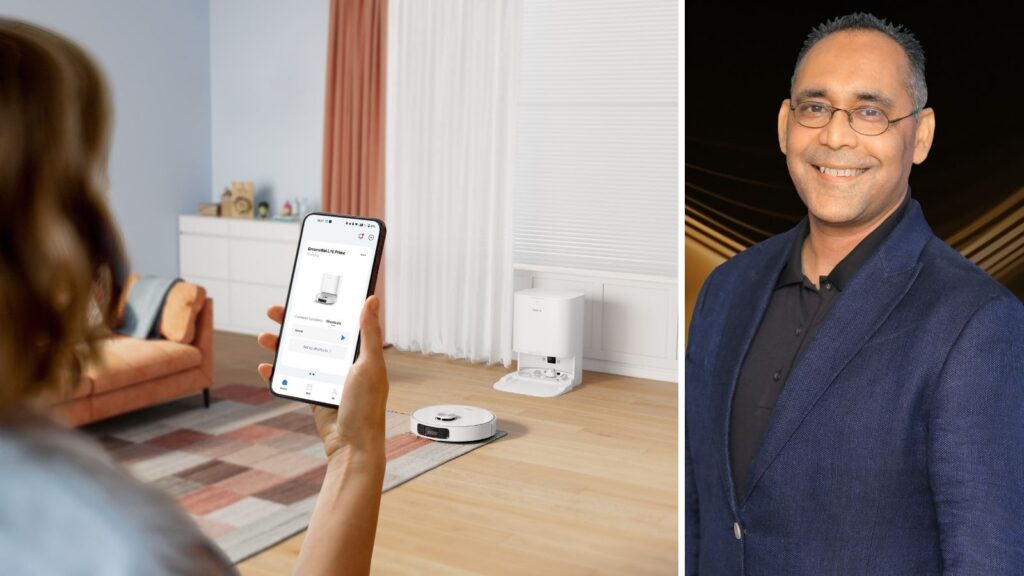“The AI capabilities in our products are more advanced than what you see in other appliances. We use multiple technologies such as LiDAR, 3D structured lights, and cameras all working together with the primary focus on obstacle recognition,” said Manu Sharma, managing director at Dreame India. The executive revealed that the company’s robots can identify almost 200 objects with 99 per cent accuracy. This, according to him, is no easy feat, as Dreame uses eight billion data sets to reach this level of precision.
In a recent interview with indianexpress.com, Sharma spoke at length about Dreame’s vision for India, AI in lifestyle tech, barriers to adoption, and more.
During the conversation, Sharma revealed that in India, the penetration of lifestyle tech products is less than one per cent, signalling massive growth potential. The company, which is known for its futuristic robotic vacuums, sold 1.5 lakh units in 2025. Sharma shared that in 2025, Dreame expects to double its sales.
AI-powered cleaning solutions
When asked how Dreame is using AI to transform everyday chores through lifestyle tech experiences, Sharma enumerated how they were harnessing AI for their suite of home appliances. Talking about the role of AI, he said that be it wires, shoes, or pets, Dreame’s robots can recognise them effortlessly, and the second key focus is stain recognition.
“When the AI detects the stain, it activates the cleaning process by releasing more liquid to break it down, cleaning it up and suctioning it repeatedly. For completely wet stains, the absorbent mop dives in to clean it up. For larger debris, such as pet food, the high suction power kicks in. The AI adjusts based on different conditions, making it highly adaptable,” explained Sharma.

Another key area is pet recognition, and Dreame machines can identify pets with 99 per cent accuracy and ensure that they avoid bumping into them. Sharma also stressed on the privacy angle. “All the AI data sits on the machine and is not stored on the cloud. We’re very conscious about consumer privacy and follow strict guidelines. Any files that are sent are encrypted, providing an extra layer of security.”
Sharma shared that Dreame deploys multiple AI technologies – SLAM navigation, 3D structured light, and cameras to recognise and avoid obstacles.
Resonating with Indian users
Story continues below this ad
When asked which Dreame device has resonated the most with Indian consumers, Sharma revealed that the L10 Prime is the biggest seller. “It offers a large-capacity mopping function, and at a price point of Rs 34,999, it’s the only product in the market with those features. It’s very well received,” he said.
The executive said the brand’s L series and the X series have captivated Indian users. He shared that these models offer larger dust bins and mopping capabilities at an affordable price point. “When I joined, the L10 was priced at Rs 54,999; now it’s at Rs 49,999, making it even more accessible,” said Sharma, adding that Dreame is number one in the premium segment. Although Dreame is seen as a premium brand, it has a complete portfolio across price ranges.
The Indian market is not only price sensitive; consumers are particularly conscious about quality and the longevity of appliances. When asked about the durability of products like the L10 Prime, Sharma, while acknowledging that technology will continue to evolve, said that older Dreame appliances continue to work seamlessly. “We’ve been in India for only about six months, and so far, users are having a smooth experience. Of course, like any appliance, proper use and maintenance matter. If users don’t clean or maintain the product, that could lead to issues,” he said.
Myths about robotic cleaners
Dreame is among one of the few brands that are making robotic cleaners available to a wider segment of consumers in India. When asked about the biggest consumer myths or barriers around the adoption of robotic cleaners in India, Sharma acknowledged that anything new and “outside the hierarchy of basic needs” takes time to be adopted. The executive added that many consumers bought robotic cleaners during the pandemic.
Story continues below this ad
“The early adopters helped drive initial demand. Now, we’re seeing more mass adoption, especially in places like South India. In fact, 45–50 per cent of India’s robotic vacuum market is in the South,” said Sharma, citing high literacy rates and difficulty in finding domestic help and the innate need to have more control over how their homes are cleaned.
The trend, according to Sharma, is not limited to South India; similar trends are being witnessed in major hubs like Mumbai and Gurugram, places where nuclear families, working couples, and solo households are common.
“I wouldn’t call these myths or barriers—I’d call it a journey of education. Our biggest job is to inform and educate consumers about what these machines can do,” he said. The main barrier is awareness; however, Indian consumers are tech-savvy.
Robotic vacuums or AI-powered lifestyle tech are rapidly making strides, and Dreame, with its unique line of offerings, aims to educate consumers about the potential of these machines. Sharma added that the company is also planning to enter offline retail soon.


